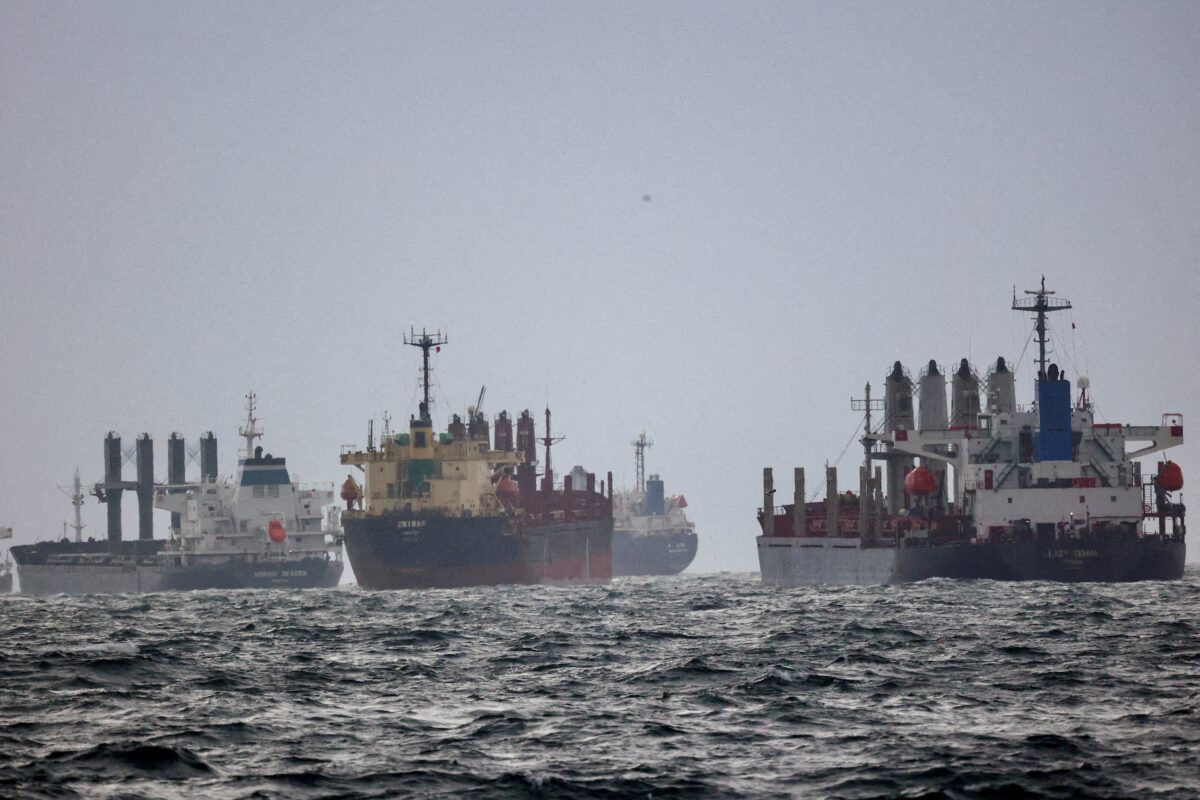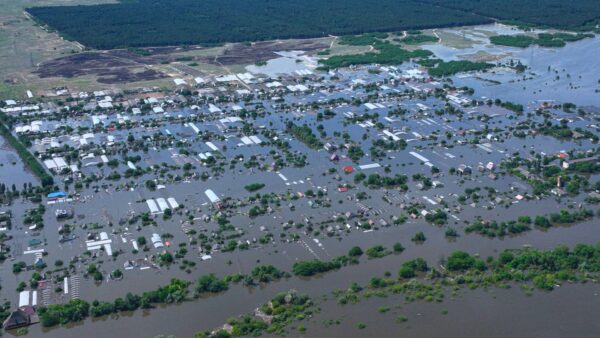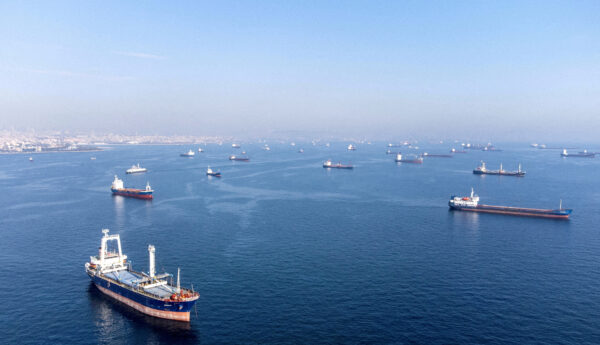


A pipeline for the transport of ammonia, a key fertilizer ingredient, was intentionally breached this week by saboteurs in Ukraine’s northeastern Kharkiv region, according to the Russian Defense Ministry.
“On the evening of June 5, a Ukrainian subversive and reconnaissance group blew up the Togliatti-Odesa ammonia pipeline near the settlement of Masiutivka in Kharkiv,” the ministry claimed in a June 7 statement.
It went on to assert that civilians—it did not state how many—had been “injured as a result of this terrorist act.”
On the same day, Oleh Sinehubov, the Kyiv-appointed governor of Kharkiv, blamed the pipeline breach on Russian artillery fire.
“There is no risk to people’s lives and health,” Sinehubov said on Telegram in reference to the reported breach.
Before Moscow’s invasion of Ukraine early last year, the pipeline was used to pump Russian ammonia to the Black Sea through Ukrainian territory.
The pipeline links Russia’s western city of Togliatti to Ukraine’s Black Sea port of Pivdennyi near Odesa. Roughly 1,500 miles in length, it is the world’s longest ammonia pipeline.
It pumped more than 2 million tons of Russian ammonia annually for distribution to global markets.
Notably, the pipeline attack coincided with the partial destruction on June 6 of a critical hydroelectric dam in the southern Kherson region.
Moscow and Kyiv accuse one another of having targeted the dam, the destruction of which has caused widespread flooding and left thousands of Kherson residents homeless.
The damaged pipeline is inextricably linked to the Black Sea Grain Initiative, a landmark agreement between Russia and Ukraine brokered last year by Turkey and the UN.
Signed last summer, the agreement allows Ukraine to continue exporting grain—despite ongoing hostilities—through the Black Sea. Since the deal came into effect, Ukraine has shipped more than 30 million tons of corn and wheat to buyers abroad.
However, in addition to “grain and related foodstuffs,” the initiative also calls for “safe navigation for the export of fertilizers, including ammonia.”
According to Moscow, this clause implies that the transit of Russian ammonia—via the pipeline—should be resumed. But Kyiv insists that the deal does not cover the transit of Russian ammonia through its territory.
Following heated talks in Istanbul last month, the deal was extended—for a third time—until July 17.
Moscow’s negotiators warned, however, that it would not be extended further until Russian ammonia exports were allowed to resume.
On May 27, Russian Foreign Ministry spokeswoman Maria Zakharova said Russia was ready to reactivate the pipeline “within days.”
She also accused Kyiv of preventing the move “by constantly setting new conditions.”
On May 30, Yuriy Vaskov, Ukraine’s deputy renovation minister, called on the UN to “clearly say that if the pipeline resumes working, Ukraine will have more opportunities [to export grain].”
Other top Ukrainian officials have said that the transit of Russian ammonia would only be permitted if the agreement was modified to let Kyiv export a broader range of commodities.
According to the Russian Foreign Ministry, the damaged pipeline will take one to three months to repair, “provided that the site is accessible.”
On June 8, Denis Manturov, Russia’s industry minister, told the Interfax news agency that Moscow lacked access to the damaged section of the pipeline.
On the same day, Kremlin spokesman Dmitry Peskov said the pipeline breach would have a “negative effect” on the Black Sea initiative.
“We don’t yet know the scope of the destruction,” he told reporters.
The pipeline, he added, “was an intrinsic part of the [grain] agreement.”
“This will further complicate the situation in terms of keeping the deal going,” Peskov said.
The issue was broached in two separate phone calls between Turkish President Recep Tayyip Erdogan and his Russian and Ukrainian counterparts on June 7.
Speaking to Russian President Vladimir Putin, Erdogan stressed the Black Sea initiative’s “vital role” in allaying global food shortages.
He also called for “continued consultations” with the UN to secure the resumption of Russian ammonia exports.
In a call the same day with Ukrainian President Volodymyr Zelenskyy, Erdogan again stressed the need for further talks to salvage the Black Sea initiative.
In his calls with both leaders, Erdogan, who last month won reelection as Turkey’s president, also called for a “comprehensive investigation” into the cause of the June 6 dam breach in Kherson.
A commission should be set up to look into the incident, he said, “with the participation of experts from the warring parties, the UN, and the international community, including Turkey.”
Despite its membership in the NATO alliance, Turkey maintains good relations with Russia, with which it shares extensive trade ties and a lengthy maritime border.
In addition to brokering the Black Sea initiative, Ankara has hosted Russian and Ukrainian officials on several occasions in an effort to mediate the ongoing conflict.
Reuters contributed to this report.


